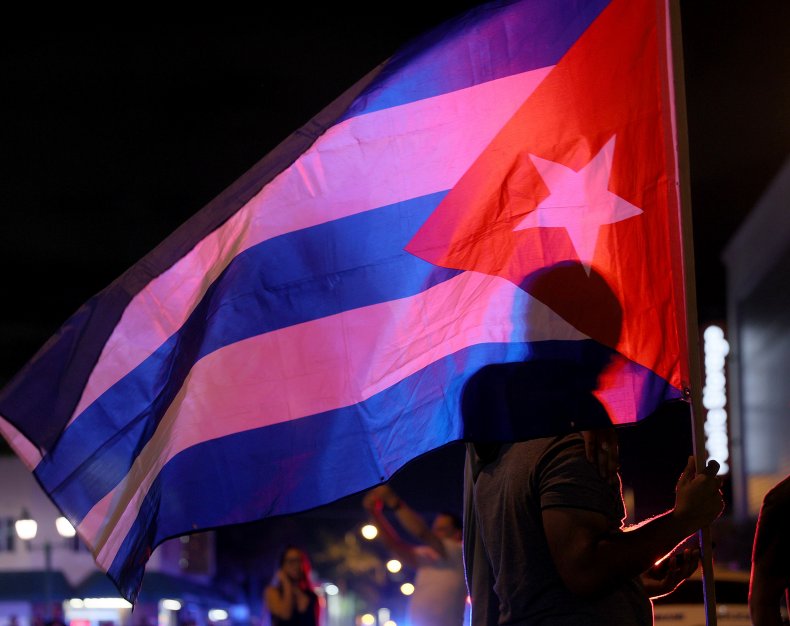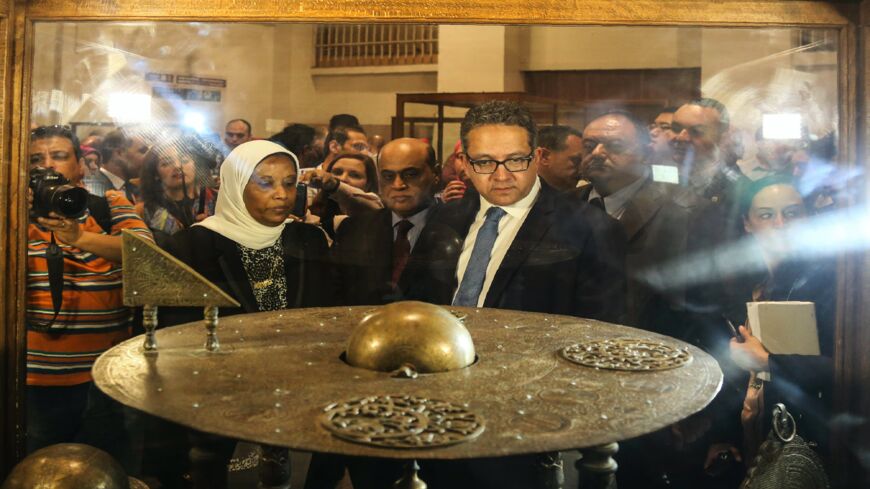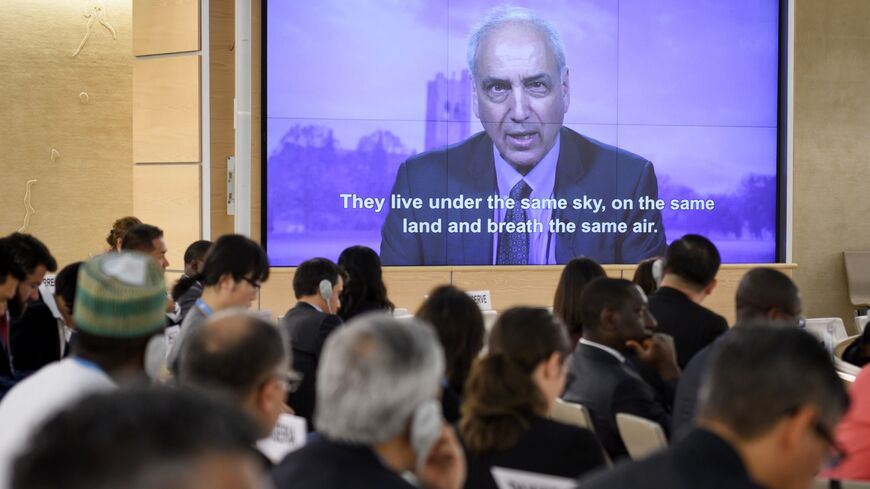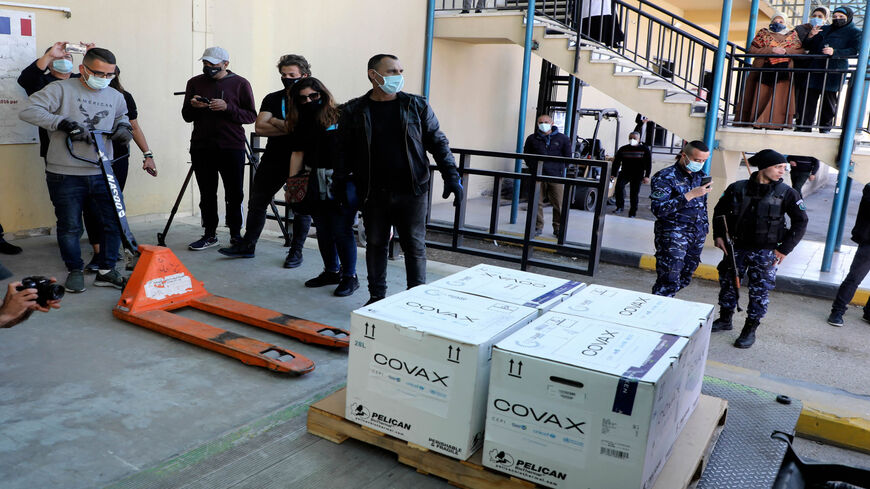July 10, 2021

Palestinians protest against illegal Israeli settlements in Beita district of Nablus, West Bank on July 02, 2021 [İssam Rimawi / Anadolu Agency]
Majed El-Zebdah
July 10, 2021 at 12:46 pm
The suppression of freedoms, threats and political arrests in the West Bank have increased following the assassination of political activist and parliamentary candidate Nizar Banat. Banat was killed under torture by a security force affiliated with the Palestinian Authority (PA) in Area C, under Israeli occupation control. This suggests a high level of coordination between the PA and the Israeli occupation regarding silencing any voice opposing the security coordination and cooperation with the Israeli occupation.
The assassination of Banat exposed the painful reality of the West Bank, which is under two occupations. The first occupation aims to confiscate land, displace Palestinians and bury their dreams of building a state and independence. The second seeks to strengthen the police grip, seize freedoms and suppress any Palestinian voice calling for building a state of law or abolishing the security and economic dependence on the occupying power.
The PA's leadership and Fatah in Ramallah are in denial of the major changes witnessed in the Palestinian streets after the battle of Saif Al-Quds. Currently, there is overwhelming support for the Palestinian resistance and a sharp decline in the popular support of the PA and Fatah. This has been confirmed by numerous recent opinion polls, including one published by the Palestinian Centre for Policy and Survey Research in Ramallah a few days ago. The poll showed that 53 per cent of Palestinians believe that Hamas is the movement most worthy of representing and leading the Palestinian people, compared with only 14 per cent who voted for Fatah led by Mahmoud Abbas. This shows that the PA has become a heavy burden standing in the way of Palestinian liberation from the Israeli occupation.
There has recently been a significant escalation in the following areas: Palestinian security services' attacks against the families of political detainees in Ramallah; the arrests of dozens of human rights defenders, writers and ex-prisoners; the abuse of women; torture of people in the streets; the arrests of journalists and the confiscation of their equipment; the prevention of peaceful sit-ins; the masked men roaming the streets of the West Bank in the name of Al-Aqsa Martyrs' Brigades, issuing threats against those who think of protesting against the repressive measures of the authority and requesting the occupation to support the PA in its repression demonstrations.
Read: AIPAC calls out Palestinian Authority's abuse of journalists but neglects Israel's attacks
In addition to all of the above, according to Hebrew newspaper Yedioth Ahronoth, there are suspicions of corruption surrounding the coronavirus vaccines deal associated with high-ranking officials of the PA, according to a leaked official document published by Quds News Network. Moreover, there was the arbitrary dismissal of Palestinians denouncing the state of repression in the West Bank. The latest of such incidents was the dismissal of the Chairman of the Board of Directors of the National Public Library Ihab Bseiso, as well as the dismissal of the diplomat at the Palestinian Embassy in Lisbon Shahd Wadi, because they denounced the killing of Banat and refused to provide political cover for his killers. All of these acts are evidence confirming that the leadership of the PA and the Fatah movement in Ramallah have become a fascist dictatorship against their own people, and that they no longer object to collaborating with the occupation in its oppression and persecution against Palestinians to deprive them of their right of expression.
The Fatah movement and the PA's leadership have underestimated the public's anger which escalated with the assassination of political activist Banat. Rather than trying to lessen this anger by dismissing Mohammad Shtayyeh's government and bringing security services' leaders to justice for giving the direct orders that led to his murder, they called for a governmental investigation committee headed by the minister of justice of the same government. The committee lacked transparency, especially after Banat's family representatives and human rights organisations withdrew from its membership. In addition, the committee refrained from announcing its findings. Meanwhile, intelligence services pressured leaders of Fatah in Gaza to provoke protests and clashes with the security services in Gaza to draw attention away from the ongoing acts of repression and suppression of freedoms taking place in the West Bank.
Recent attacks of security authorities against those who denounced the assassination of Banat, insisting on suppressing freedoms and violating them in the Palestinian streets, are all a natural extension of Abbas's failure and his monopoly in representing Palestinians and making decisions for them. Abbas, who is the president of the PA in Ramallah, committed a number of legal violations when, in December of 2018, he dissolved the Palestinian Legislative Council and reconstituted the Supreme Judicial Council in Ramallah in early July 2019. This was a major encroachment on the judicial and legislative systems and a clear violation of the Palestinian Basic Law that stipulates the principle of separation of powers. It is as if Abbas was preparing for these days in which masses in the streets of the West Bank are rising up to demand freedom, only to find themselves facing a fully repressive regime that is not different from the occupation regime oppressing Palestinians for decades.
The PA's leadership in Ramallah and the security services may temporarily succeed in suppressing protests calling for freedom of expression and peaceful demonstrations in support of political detainees, but they will certainly not succeed in stifling the free Palestinian voice. Palestinians are no longer afraid of subjugation and persecution. They now see the repression of the security services as an extension of the occupation, and believe that they need to be freed from them as a necessary prelude to liberation from the oppression of the occupation and its occupiers.
Translated from Felesteen, 8 July, 2021.
UN: Israel demolished, seized 421 Palestinian homes since start of 2021









